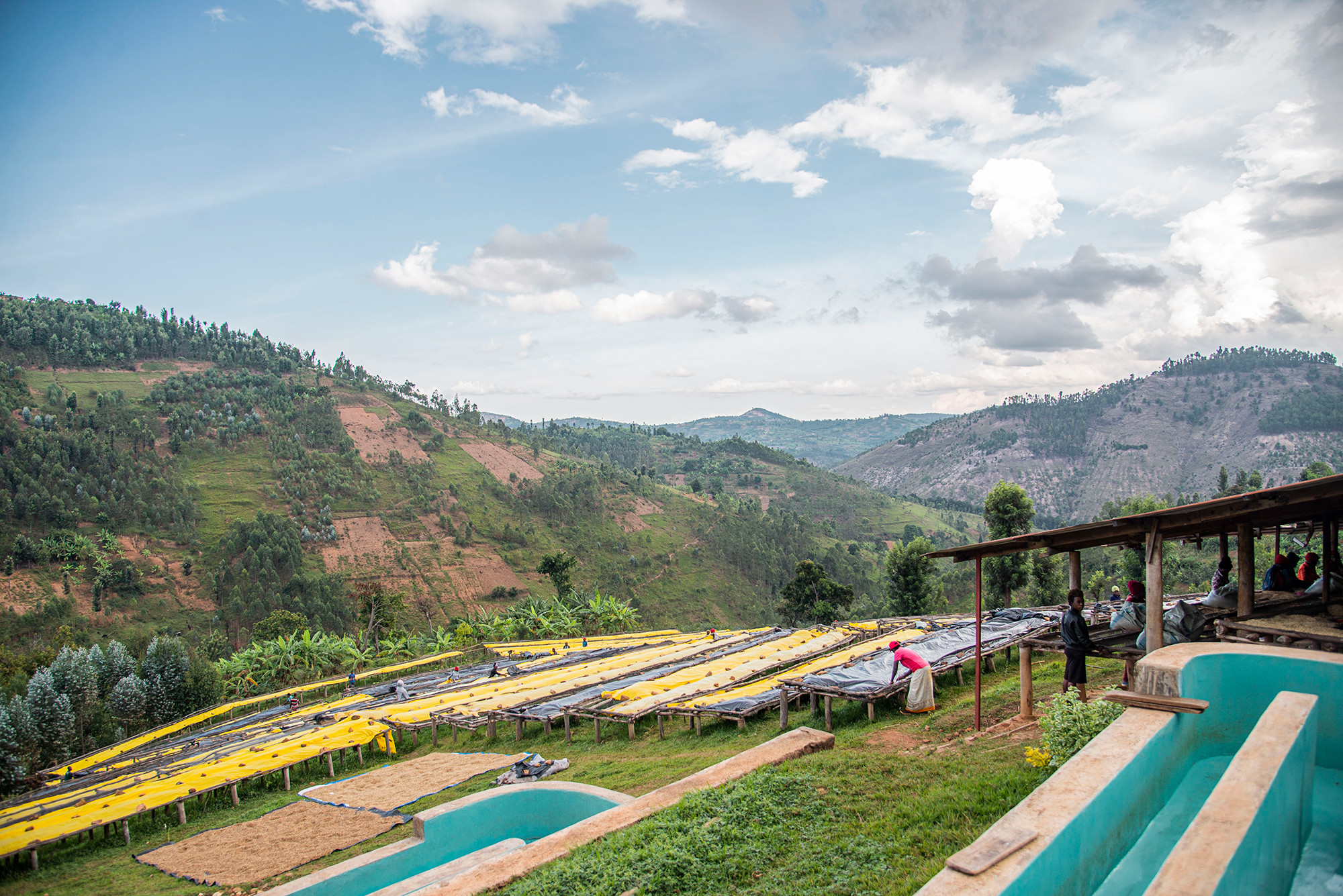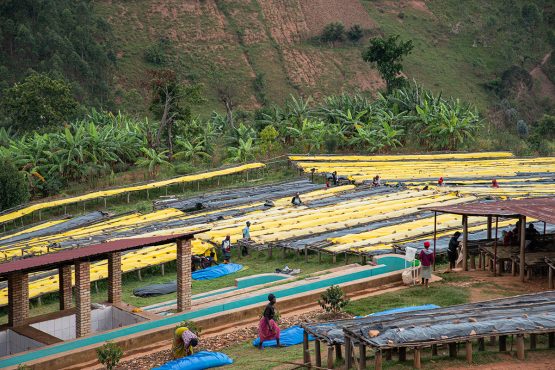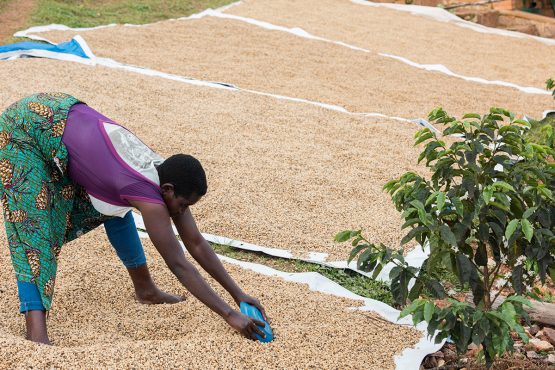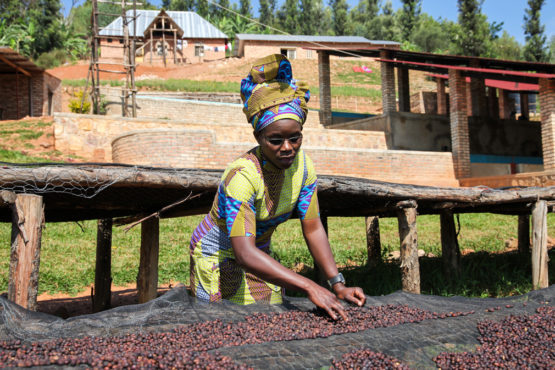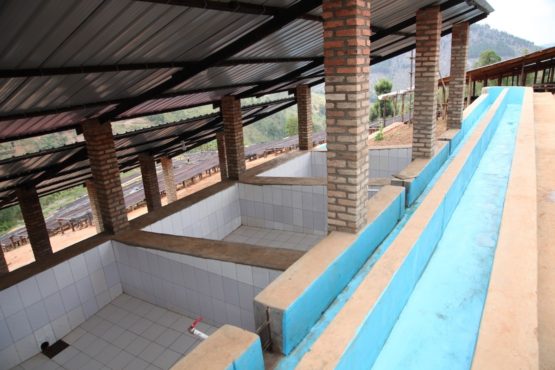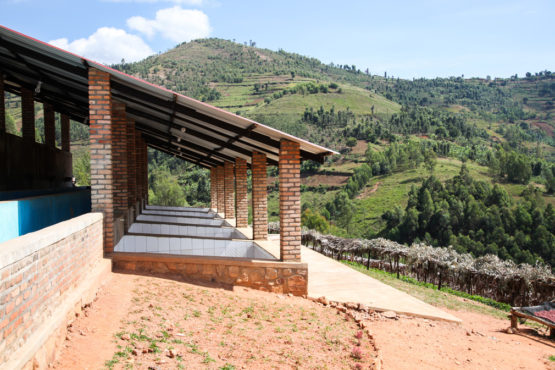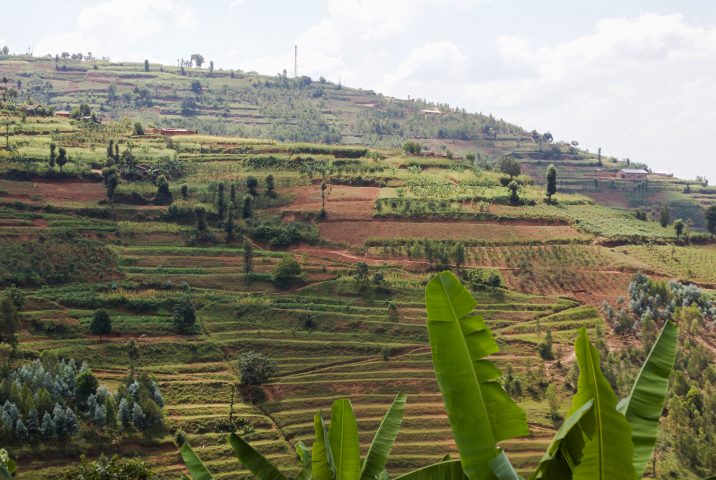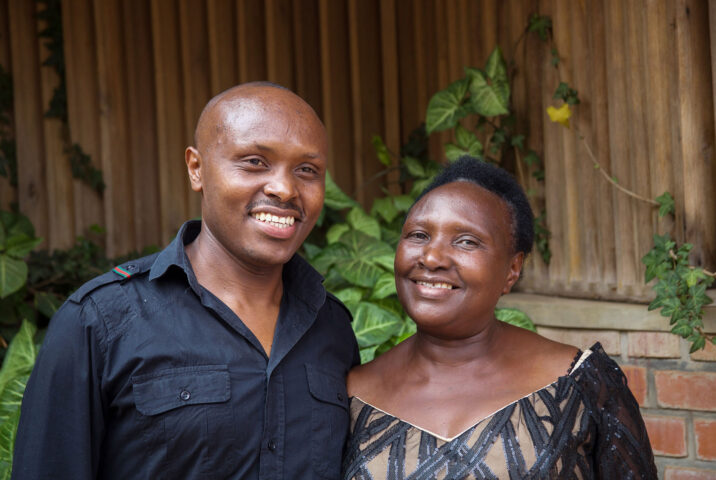Umurage
Great intensity and balance. Toffee apple, sweet almond and condensed milk, with a creamy body and clean finish.
This 100% Red Bourbon lot was grown by independent, smallholder producers who farm coffee in the high hills surrounding Umurage washing station, in the Kigoma Sector of Huye District, in Rwanda’s rugged Southern Province. Umurage is one of four washing stations owned and managed by the influential company, Buf Coffee. Umurage sits at 1,750m above sea level, overlooking a landscape of vibrant green hills and rich red earth. This station services about 460 local producers in total, who deliver fresh cherry daily during the harvest period.
Typically, farms in the surrounding area are very small – averaging around a quarter of a hectare (or 300-600 trees) – and are situated between 1,800 to 2,000 meters above sea level. The high elevation of the surrounding area allows coffee cherry to ripen slowly, resulting in a complex and sweet flavour profile. Coffee is grown as a cash crop, alongside subsistence food crops like maize, beans and sorghum and some livestock like goats and chickens. Cows are also an important asset to a farming family. Besides having practical advantages – like providing milk and yoghurt to feed the family, producing excellent manure for the coffee farms, and being an opportunity for additional income – they are also a traditional symbol of wealth and status in Rwanda.
Coffees at Umurage are processed with meticulous care and attention, resulting in exceptional clarity and cleanliness in the cup. All of the water used at the washing station is fresh and clean, due to the site’s close proximity to the Nyungwe Rainforest and Nile River. Used water from the Umurage is filtered using a water sanitation system to remove all contaminants before being reintroduced to the local ecosystem.
Quality control and day-to-day operations at Umurage are overseen by long time Buf employee and station manager, Angelique Muhawenimana, who started her career in coffee as a sorter at Umurage’s sister washing stations, Remera and Nyarusiza. She is assisted by Head of QC, Speciose Mukandahiro. Together, they ensure that the coffee is harvested and processed with care and production standards are kept at the highest possible level. At the end of each season, any surplus profits are shared with the producers and washing station managers.
Umurage translates to “Heritage” in Kinyarwandan. Ben from Buf coffee explained, “This name acknowledges the generations before us who farmed coffee, and to recognise our obligation to sustainably produce coffee, in order to transmit coffee farming to our future generation.”
Head here to learn more about the work of Buf Coffee in Rwanda.
HOW COFFEE IS PROCESSED BY BUF COFFEE
- The ripe cherries are picked by hand and then delivered to the washing station either on foot, by bike, or by trucks that pick up cherries from various pick-up points in the area.
- Before being pulped, the cherries are deposited into flotation tanks, where a net is used to skim off the floaters (less dense, lower grade cherries). The heavier cherries are then pulped the same day using a mechanical pulper that divides the beans into three grades by weight.
- The beans (in parchment) are then dry-fermented (in a tank with no added water) overnight for 8–12 hours. They are then sorted again using grading channels; water is sent through the channels and the lighter (i.e. lower grade) beans are washed to the bottom, while the heavier cherries remain at the top of the channel.
- The wet parchment is then soaked in water for around 24 hours, before being moved to pre-drying beds where they are intensively sorted for around six hours. This step is always done while the beans are still damp because the green (unripe) beans are easier to see. It is also always done in the shade to protect the beans from direct sunlight (which they have found helps to keep the parchment intact and therefore protects the bean better).
- The sorted beans are finally moved onto raised African drying beds in the direct sun to dry slowly over 10–20 days. During this time the coffee is sorted carefully for defects and turned regularly to ensure the coffee dries evenly. It is also covered in the middle of the day when the sun is at its hottest.
- Once at 11–12% humidity, the coffee (still in its parchment) is stored in the washing station’s warehouse in carefully labelled lots until it is ready for export. The coffee is then sent to Buf’s brand new dry mill, Ubumwe (built 2017), to be dry-milled. Here the parchment is removed, and the beans are sorted again by hand and using machinery to remove any physical defects. This is done under the watchful eye of Edouine Mugisha, who has worked with Buf since 2011. Having control over the milling of the coffee means that Buf has greater control over the quality of sorting and processing from cherry delivery right through to export.
WHY WE LOVE IT
Coffees from Huye District are characterised by heavy sweetness and juicy character, and we think this lot is a great example of the region’s potential. We love how distinct this lot is, with chamomile florals and a sweet and juicy cup profile and excellent structure.
